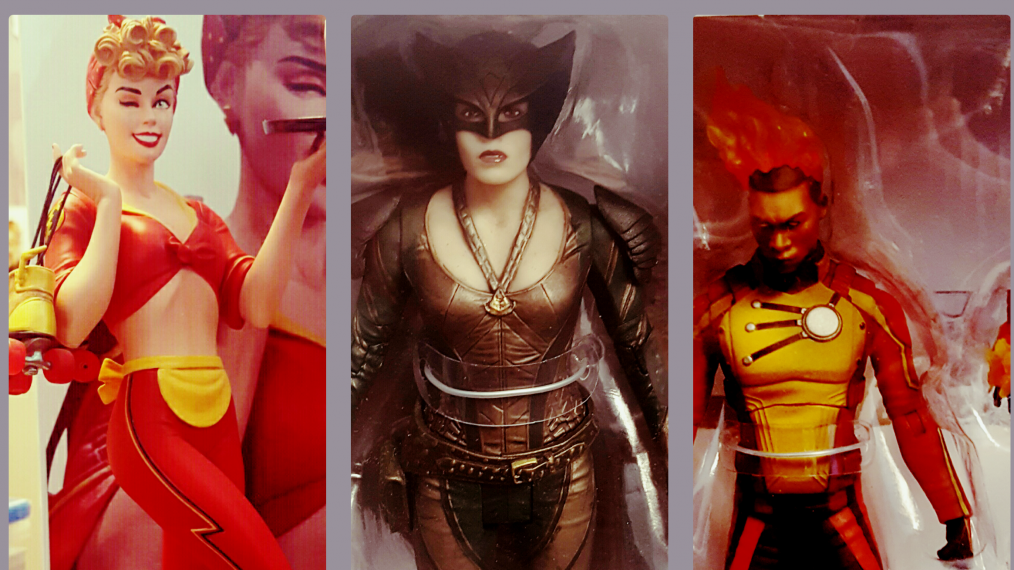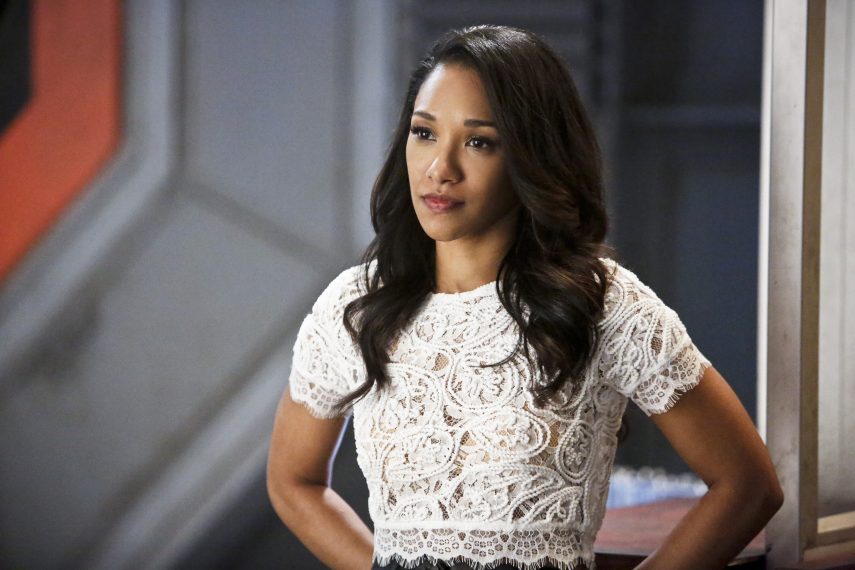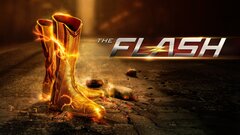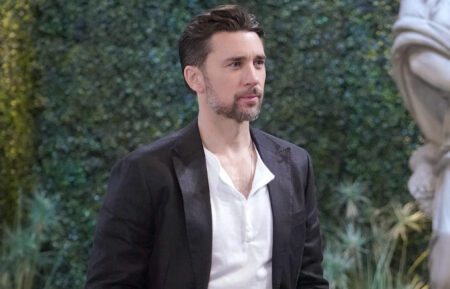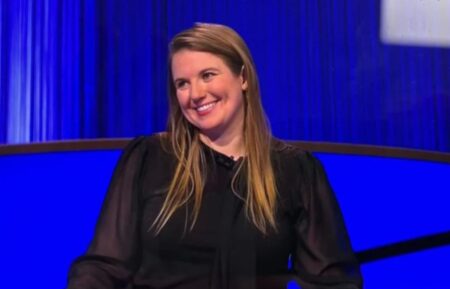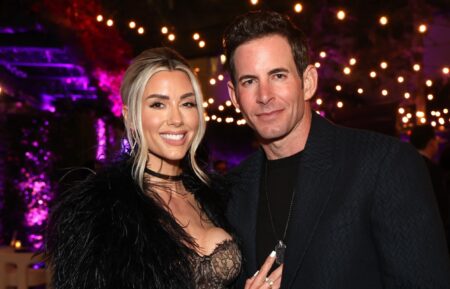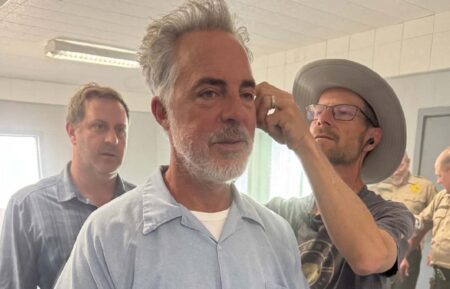Tom Cavanagh on Directing ‘The Flash’ and Moonlighting as a Bank Robber with Grant Gustin
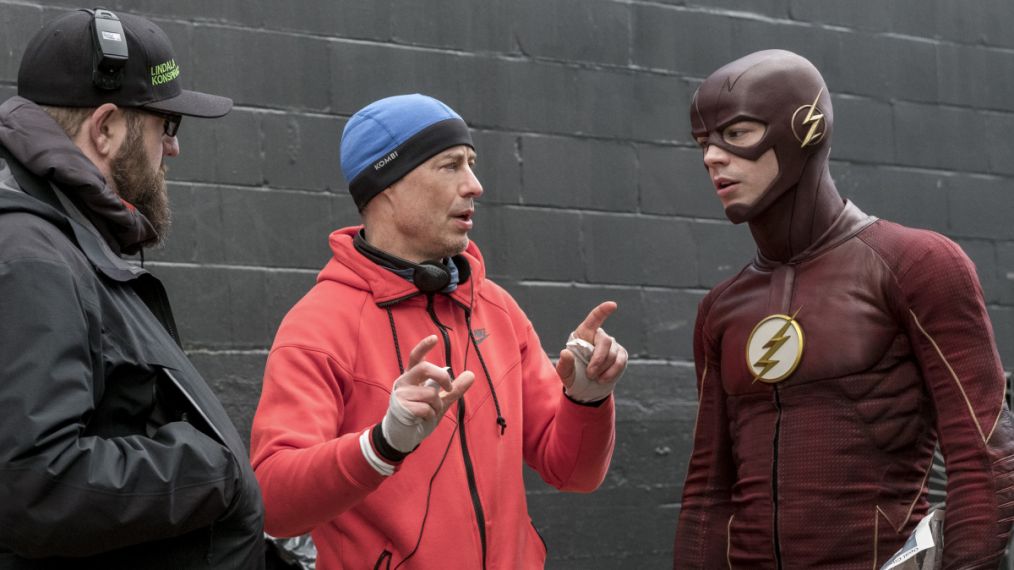
As if playing Harrison Wells, Eobard Thawne/The Reverse Flash, Hannibal Bates, Harry Wells and now “HR” Wells over the last three seasons hasn’t been enough for Tom Cavanagh, he’s now adding director to his Flash portfolio. The affable actor helmed this week’s episode, “The Once and Future Flash,” which finds Barry (Grant Gustin) racing through time to uncover Savitar’s identity and crossing paths with a much-changed Team Flash. Here, Cavanagh discusses mapping out our hero’s journey, making it look badass and what he and Gustin are running right into after the season shuts down.
You’ve directed before, but never in the superhero realm, right?
No, I’ve never done a superhero show. I’ve done some New York stuff, some network television and some theater, but what’s funny about directing a superhero show in today’s day and age is that, for a lot of directors I see come up here, myself included, it’s all relatively a new type of television show to direct. I’ve been doing this for a long time and you could never tell these stories…because you just didn’t have the money or the digital capacity to tell them. Nowadays, the technical wizardry is so advanced that they can actually do it. You can have a plane crash or have someone running across water on television now and not make that audience go, “Yeah OK. Nice try.” [Laughs]
That’s gotta open up the possibilities and let you challenge yourself to think really far out of the box.
Well, it’s interesting, because that’s exactly it. Here’s a perfect example on the episode I directed: We didn’t really like the ending and had a couple of different versions of the big finale. You know, we like to have humor and heart and big spectacle on every episode of The Flash. And it’s not like other television shows I’ve done, where it’s like “Well, we can’t do that, that’s gonna be too costly, we don’t have the capacity to do that yet.” On The Flash, it’s the exact opposite, we’re like “How big can we go? What can we get away with?” The digital-effects artists, the special-effects teams are so good, you’re essentially only limited by what you can think of. And so you’re literally like, “What if he phases through a different Earth and then comes out on the other side?” and they go “Yup, okay. We can do that.”
What do you get to do in your episode?
Where we left off on the last episode, the boys are under attack from Killer Frost (Danielle Panabaker), who’s blasting ice spears and ice shots at them. You can do that digitally, that’s a perfect example of the kind of thing that five to seven years ago, was very hard to get the speed right and make it look like she was actually shooting. Nowadays, it’s amazing how they can do that. And so now our challenge is, do we want to throw practical ice at the actors? That’s always gonna look good. Or what is the combination? Digital versus practical? So you end up trying to figure out that we can do 60/40 on this shoot. A master shot is gonna be digital, but then once we get into the closer shots, bing, we’re gonna use the practical ice and then you turn to the women and men who are in charge of [all of that] and they’re never like, ‘Oh well, I don’t know.’ They do it! That is part of the expertise that comes with shooting a television show in Vancouver. The teams are just so experienced and good.
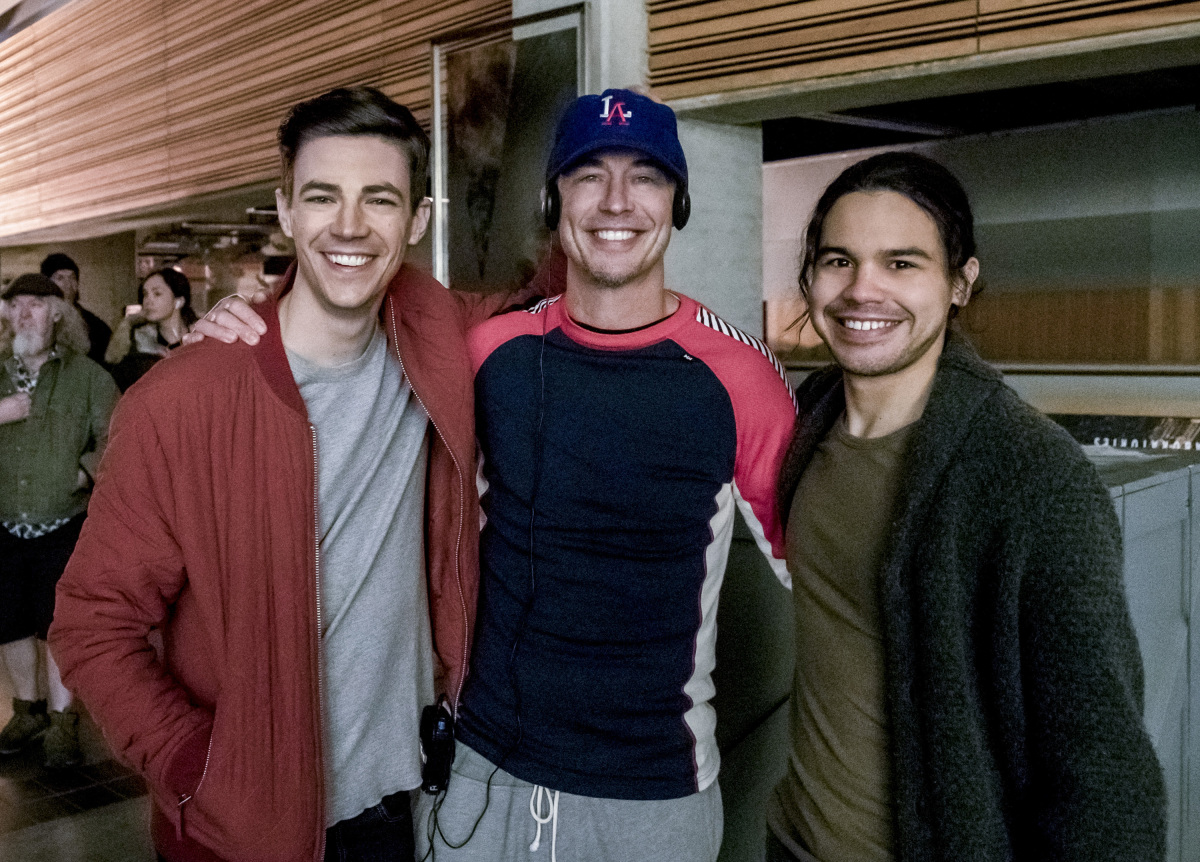
Pictured (L-R): Behind the scenes with Grant Gustin, Tom Cavanagh and Carlos Valdes
Of course this episode, “The Once and Future Flash,” is no small feat for any director. Not only are you doing a superhero stuff, but also visiting the future where Barry meets his crew in 2o24.
Yeah, it’s a funny thing when you’re working on these things. [Laughs]. Because you do have a budget and it may be like, you get five split-screens on a shot because you have to do Grant versus Grant, but then you know that means you’re not gonna have as much money for Caitlin’s ice throws. So you’re go ‘Give me three split screens and I’ll [use some] for the ice effects.” It’s incredible, every director that comes into the show will tell you that they have to think of how many times they want to see the Flash speed in on camera versus off camera, because that costs us money to do the key effects. Or do they want to save up for the big punch or a slow-motion dive or something? You have all these effects that you want to do and can do, so then you end up bartering! But on my episode, we’re leaving present time, and we’re going to see a villain who goes in and out of mirrors…that’s a huge thing. We’re going to have Barry talking to Barry, that’s a huge thing. There’s a lot happening on screen.
What does your 20/2024 look like?
We’d thought it’d be interesting to have it look remarkably different then it currently exists. So it’s a lot more of a darker, forbidding world and it’s essentially told in two different ways: With sets and locations, but also with the lighting and the darkness that creates a mood. Every scene is sort of infused with this weight. The sets, which viewers will be very familiar with, are suddenly seen in a completely different way, almost playing it as an additional character. It’s quite a cool look.
And what is going on in the future? The entire season has been about saving Iris and he finds a team that is very different, even divided, after her death? That can be very upsetting to fans.
It’s interesting when you think about it. Tell me, what’s Damian gonna be like in 8 years? You know what I mean? Hopefully he’s happy, he’s on a beach somewhere, having a nap at 3PM. But you know what, that doesn’t sell newspapers. So for us, it’s like okay so we would like to have Barry all happy and blissful, but then our viewers are gonna tune out, so he needs to have conflict and all this kind of stuff and we’re gonna make it look dark and foreboding. You hit the nail on the head—that’s the nice thing about the stakes on a superhero show, they can be very personal because you’re talking about the lives of characters that people have been familiar with for a number of seasons. There’s a built-in allegiance to these characters and we’re standing on the shoulders of these bonds that people have formed with them. It makes the conflict we have in the episode I directed that much more personal.
On top of directing and starring on the show, you are about to shoot a side project with Grant, too? You guys don’t spend enough time with each other?
[Laughs] It’s funny right? We laugh about that all the time. When we wrap, the next day we’re gonna start this thing that I wrote that I’m directing for the two of us. But what’s interesting is when you act on a show, again we’re visiting the same scenes, but off camera, we’re also interested in other things and stepping into different lights. Grant, for example, you know as The Flash. He’s your leading man. And me as H.R., I’m this comic foil. So I wrote this thing about the world’s two most inept bank robbers—Tom and Grant—and we’re gonna shoot it on the streets of Vancouver as soon as we finish the season of The Flash.
Given how good the crew is, I hope you’re recruiting some of them to help, too.
It’s only gonna take about a week and I’m totally calling all the favors from the crew on the Flash. Yeah the great thing about Vancouver crews is that if you know the right people, you can make a short film look like a bonafide big screen glossy picture. [Laughs]
The Flash, Tuesdays, 8/7c, The CW
From TV Guide Magazine
How 'Countdown' Recruited Jensen Ackles to Go Full 'Die Hard'
Countdown boss Derek Haas talks creating the character around Ackles, and the cast teases the “Avengers”-like team of the crime thriller. Read the story now on TV Insider.

